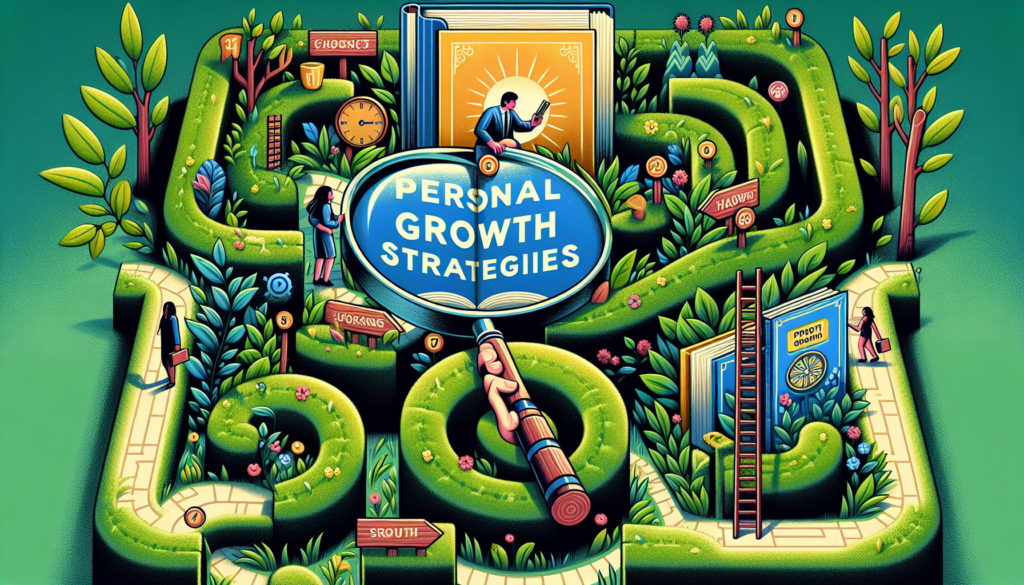Enhancing Focus and Concentration: A Comprehensive Guide
Have you ever found yourself struggling to concentrate on a task, constantly battling distractions, or feeling like your mind is wandering aimlessly? In today’s fast-paced world filled with information overload and constant stimuli, maintaining focus and concentration has become more challenging than ever. Whether you’re a student trying to study for exams, a professional aiming to meet deadlines, or simply someone looking to be more present in their daily activities, enhancing focus and concentration can have a profound impact on your productivity, performance, and overall well-being.
But what exactly does it mean to enhance focus and concentration? How can we train our minds to stay attentive and engaged in a world that constantly demands our attention? In this comprehensive guide, we will delve deep into the science behind focus and concentration, explore proven strategies and techniques to improve them, and discuss the potential benefits of sharpening these cognitive skills. So, let’s embark on this journey together and unlock the secrets to mastering the art of focus and concentration.
The Science of Focus and Concentration
Before we dive into practical tips and strategies, it’s essential to understand the underlying mechanisms that govern our ability to focus and concentrate. Focus refers to the cognitive process of selectively concentrating on one aspect of the environment while ignoring others. It involves the capacity to sustain attention over time and resist distractions that might interfere with our goal-directed behavior. On the other hand, concentration involves the mental effort required to maintain focus on a specific task or stimuli.
Research in cognitive psychology and neuroscience has shed light on the neural networks and brain regions responsible for attention and concentration. The prefrontal cortex, a region located at the front of the brain, plays a crucial role in regulating attention, working memory, and cognitive control. Neurotransmitters such as dopamine and norepinephrine also influence our ability to focus by modulating the activity of neurons in the brain.
Moreover, attentional control is influenced by various factors, including our genetic predisposition, environmental stimuli, emotional state, and cognitive load. For instance, stress, fatigue, and multitasking can impair our ability to concentrate, whereas mindfulness, relaxation, and adequate rest can enhance our focus and attentional capacity.
Strategies for Enhancing Focus and Concentration
Now that we’ve explored the science behind focus and concentration, let’s delve into practical strategies and techniques to improve these cognitive skills. From time management techniques to mindfulness practices, there are various approaches you can adopt to boost your focus and concentration levels.
Time Management Techniques
Effective time management is essential for enhancing focus and concentration. By prioritizing tasks, setting realistic goals, and creating a structured schedule, you can reduce procrastination and improve your productivity. The Pomodoro Technique, for example, involves working in focused intervals (e.g., 25 minutes) followed by short breaks to prevent burnout and maintain concentration.
Breaking down complex tasks into smaller, manageable chunks can also help you stay focused and motivated. By setting clear objectives and milestones, you can track your progress and maintain a sense of accomplishment throughout the task. Additionally, using tools such as task lists, calendars, and digital apps can aid in organizing your workflow and minimizing distractions.
Mindfulness Practices
Mindfulness, the practice of being fully present and aware of your thoughts, feelings, and sensations, has been shown to enhance focus and concentration. By cultivating mindfulness through meditation, deep breathing, or body scan exercises, you can train your mind to stay grounded in the present moment and reduce mental clutter.
Studies have demonstrated that regular mindfulness practice can improve attentional control, cognitive flexibility, and emotional regulation. Mindful meditation techniques, such as focused attention and loving-kindness meditation, can help you develop a non-judgmental awareness of your thoughts and emotions, thereby enhancing your ability to concentrate on the task at hand.
Healthy Lifestyle Habits
Our physical health plays a significant role in our cognitive functioning, including focus and concentration. Engaging in regular exercise, maintaining a balanced diet, staying hydrated, and getting an adequate amount of sleep are essential for optimal brain performance. Physical activity has been shown to increase blood flow to the brain, promote neuroplasticity, and enhance cognitive function.
Furthermore, staying hydrated by drinking enough water throughout the day can improve cognitive performance, memory retention, and attention span. Dehydration has been linked to decreased alertness, fatigue, and impaired cognitive function, so it’s crucial to prioritize hydration as part of your daily routine.
Eliminating Distractions
In today’s digital age, distractions are ubiquitous and can significantly impact our ability to focus and concentrate. From social media notifications to email alerts, our devices constantly bombard us with stimuli that pull our attention away from the task at hand. To enhance focus and concentration, it’s essential to create a distraction-free environment that minimizes external interruptions.
One effective strategy is to implement the concept of “deep work,” where you dedicate uninterrupted blocks of time to focus on a single task without distractions. By turning off notifications, silencing your phone, and creating a designated workspace free from clutter, you can create an optimal environment for concentration and productivity. Additionally, using productivity tools such as website blockers and time-tracking apps can help you stay focused and on track with your goals.
Practicing Cognitive Exercises
Just like physical exercise strengthens our muscles, cognitive exercises can enhance our mental faculties, including focus and concentration. Brain-training games, puzzles, and memory exercises have been shown to improve cognitive function, attentional control, and information processing speed. By challenging your brain with new tasks and activities, you can stimulate neural pathways, enhance synaptic connections, and boost your cognitive abilities.
One popular cognitive exercise is the Stroop Test, which involves naming the color of ink used to print words that spell out different colors (e.g., the word “blue” printed in red ink). This task requires selective attention, cognitive control, and inhibitory control to overcome the interference between conflicting stimuli. By practicing the Stroop Test and other cognitive exercises regularly, you can strengthen your attentional capacity and improve your ability to focus on relevant information.
Creating a Productive Environment
Your physical environment can have a significant impact on your ability to focus and concentrate. By optimizing your workspace, reducing clutter, and incorporating elements that promote concentration, you can create a conducive environment for productive work. Natural lighting, ergonomic furniture, and plants can enhance your mood, creativity, and cognitive performance.
Moreover, personalizing your workspace with motivational quotes, inspiring artwork, or calming colors can boost your motivation and focus. By surrounding yourself with objects that resonate with your values and goals, you can create a positive and energizing atmosphere that supports your concentration and productivity.
Expert Opinions
Leading experts in the fields of psychology, neuroscience, and productivity have shared valuable insights on enhancing focus and concentration. Dr. Daniel Goleman, a renowned psychologist and author of “Emotional Intelligence,” emphasizes the importance of self-awareness and emotion regulation in improving attentional control. By understanding our emotional triggers and learning to manage stress effectively, we can enhance our ability to stay focused and engaged in challenging situations.
Dr. John Ratey, a clinical psychiatrist and author of “Spark: The Revolutionary New Science of Exercise and the Brain,” highlights the profound impact of physical activity on cognitive function and mental health. According to Dr. Ratey, regular exercise not only improves mood and reduces stress but also enhances cognitive abilities such as focus, attention, and memory. By incorporating physical activity into your daily routine, you can optimize your brain function and boost your overall well-being.
Common Misconceptions
There are several common misconceptions about focus and concentration that can hinder our efforts to improve these cognitive skills. One prevalent myth is that multitasking is an effective way to get more done in less time. In reality, multitasking can reduce efficiency, increase errors, and impair cognitive performance due to the mental switching costs involved in juggling multiple tasks simultaneously.
Another misconception is that focus and concentration are fixed traits that cannot be improved. On the contrary, research suggests that attentional control is a trainable skill that can be enhanced through practice, mindfulness, and cognitive exercises. By adopting a growth mindset and investing time and effort in developing your focus and concentration, you can unlock your full cognitive potential and achieve greater success in your endeavors.
Comparative Analysis
When comparing different strategies for enhancing focus and concentration, it’s essential to consider their effectiveness, feasibility, and long-term sustainability. While some techniques may yield immediate results, others may require more time and practice to produce lasting benefits. For instance, caffeine and stimulants can provide a temporary boost in alertness and focus, but their effects may diminish over time and lead to dependency.
In contrast, mindfulness practices such as meditation and deep breathing offer a holistic approach to improving attentional control and emotional regulation. By cultivating mindfulness through regular practice, you can develop a sense of inner calm, mental clarity, and resilience that support your focus and concentration in the long run. Ultimately, the most effective strategies for enhancing focus and concentration are those that align with your goals, preferences, and values, allowing you to sustainably integrate them into your lifestyle.
Conclusion
In conclusion, enhancing focus and concentration is a multifaceted endeavor that requires a combination of cognitive strategies, lifestyle habits, and environmental factors. By understanding the science of attention, implementing proven techniques such as time management and mindfulness, and creating a conducive environment for focused work, you can cultivate your cognitive abilities and achieve peak performance in various domains of life.
Remember that focus and concentration are skills that can be developed and refined through consistent practice and dedication. By incorporating the strategies outlined in this guide into your daily routine, you can sharpen your attentional control, boost your productivity, and unlock your full potential. So, whether you’re studying for an exam, working on a project, or simply striving to be more present in each moment, enhancing focus and concentration can empower you to thrive in today’s fast-paced world.


